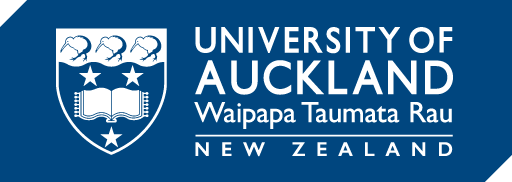by sfab358 | Sep 22, 2019
27th November 2019, 2-4pm, room 303-G014 (Science building)
To attend, please RSVP here
| 2pm |
Welcome by the Theme Leader
Steven Galbraith (UoA, Mathematics) |
| 2:15pm – 3.45pm |
CMSS Members – Lightning Talks
- Simona Fabrizi (UoA, Economics): Voting under ambiguity
- Matthew Ryan (AUT, Economics): Mathematical psychology and the algebra of choice
- Arkadii Slinko (UoA, Mathematics): Condorcet Domains
- Patrick Girard (UoA, Philosophy): Facing the inevitable: avoiding, tolerating, or embracing inconsistency
- Steffen Lippert (UoA, Economics): Transfers and climate cooperation
- James Tremewan (UoA, Economics): An overview of my ongoing research using experimental methods in social science
- Thomas Pfeiffer (New Zealand Institute for Advanced Studies (NZIA), Massey University): Predict to decide: Decision markets in theory, experiments and real-world implementations
CMSS Affiliated Postgraduate Students – More lightning talks
- Michael Gordon (PhD Candidate, Massey University): Large-scale forecasting in the DARPA SCORE project
- Wenlong (Stan) Wang (PhD Candidate, Massey University): Towards implementing a decentralized decision market application
- Yen Ling Tan (Honours student, UoA): Consumer decision-making under uncertainty on digital platforms
|
| 3:45pm –
4pm |
Discussion on future activities of the CMSS and/or Knowledge Sciences Theme
Chair: Steven Galbraith (UoA, Mathematics) |
| 4pm |
Drinks and discussions |
by sfab358 | Sep 19, 2019
The CMSS is hosting the 2019 edition of the event. Visit this website to know more about the event. Everyone welcome to join any of the sessions planned for this meeting!
by sfab358 | Sep 12, 2019
Speaker: Yi-Hsuan Lin (Academia Sinica, Taipei)
Paper to be presented: “Stochastic Choice and Rational Inattention”
Date, Time and Venue: Wednesday, 23 October 2019, 15:00-16:00, 260-5115 [Business School Building, Level 5]
Abstract: We consider a decision maker who first chooses an information structure, and then chooses an action after receiving a signal. The cost of information may be either material or cognitive and is unobserved. Thus, cost must be inferred from observable behavior. We assume that the choice of action is observed, but the choice of information is not. Due to the unobservability of the acquired private information, the choice of action appears random from an outside analyst’s point of view. We show that, given only stochastic choice from menus of actions, an analyst can identify the agent’s taste (risk attitude), prior belief, and information cost function. Identification of the cost function from behavior stands in contrast with the large literature on applications of the rational inattention model where the functional form of the cost function is assumed known by the analyst (Sims 2003). In addition, we discuss the behavioral implications of our model which are weaker than some key properties of random expected utility models. In particular, the property of Monotonicity (the addition of a new action cannot increase the probabilities of choice of the existing actions) is violated in our model because of the endogeneity and hence menu-dependence of private information. However, two axioms that jointly weaken Monotonicity are satisfied. Finally, we provide necessary and sufficient conditions for stochastic choice to be rationalized by our model.
Everyone Welcome!
by sfab358 | Aug 5, 2019
Speaker: Arkadii Slinko (University of Auckland)
Paper to be presented: “Secret Sharing and Prisonner’s Dilemma” joint with Yvo Desmedt (University of Texas at Dallas)
Date, Time and Venue: Wednesday, 21 August 2019, 15:00-16:00, 260-5115 [Business School Building, Level 5]
Abstract: The study of Rational Secret Sharing initiated by Halpern and Teague (2004) regards the reconstruction of the secret in secret sharing as a game. It was shown that participants (parties) may refuse to reveal their shares and so the reconstruction may fail. Moreover, a refusal to reveal the share may be a dominant strategy of a party. In this paper we consider secret sharing as a sub-action or subgame of a larger action/game where the secret opens a possibility of consumption of a certain common good. We claim that utilities of participants will be dependent on the nature of this common good. In particular, Halpern and Teague (2014)’s scenario corresponds to a rivalrous and excludable common good. We consider the case when this common good is non-rivalrous and non-excludable and many natural Nash equilibria. We list several applications of secret sharing to demonstrate our claim and give corresponding scenarios. In such circumstances the secret sharing scheme facilitates a power sharing agreement in the society. We also state that non-reconstruction may be beneficial for this society and give several examples.
Everyone Welcome!
by sfab358 | Jul 31, 2019
Speaker: David Kelsey (University of Exeter)
Paper to be presented: “Tort Liability and Unawareness” joint with Surajeet Chakravarty (Exeter University, UK) and Joshua Teitelbaum (Georgetown University, USA)
Date, Time and Venue: Wednesday, 14 August 2019, 15:00-16:00, 260-5115 [Business School Building, Level 5]
Abstract: Unawareness is a form of bounded rationality where a person fails to conceive all feasible acts or consequences or to perceive as feasible all conceivable act-consequence links. We study the implications of unawareness for tort law, where relevant examples include the discovery of a new product or technology (new act), of a new disease or injury (new consequence), or that a product can cause an injury (new link). We argue that negligence has an important advantage over strict liability in a world with unawareness-negligence, through the stipulation of due care standards, spreads awareness about the updated probability of harm.
Everyone Welcome!

Recent Comments